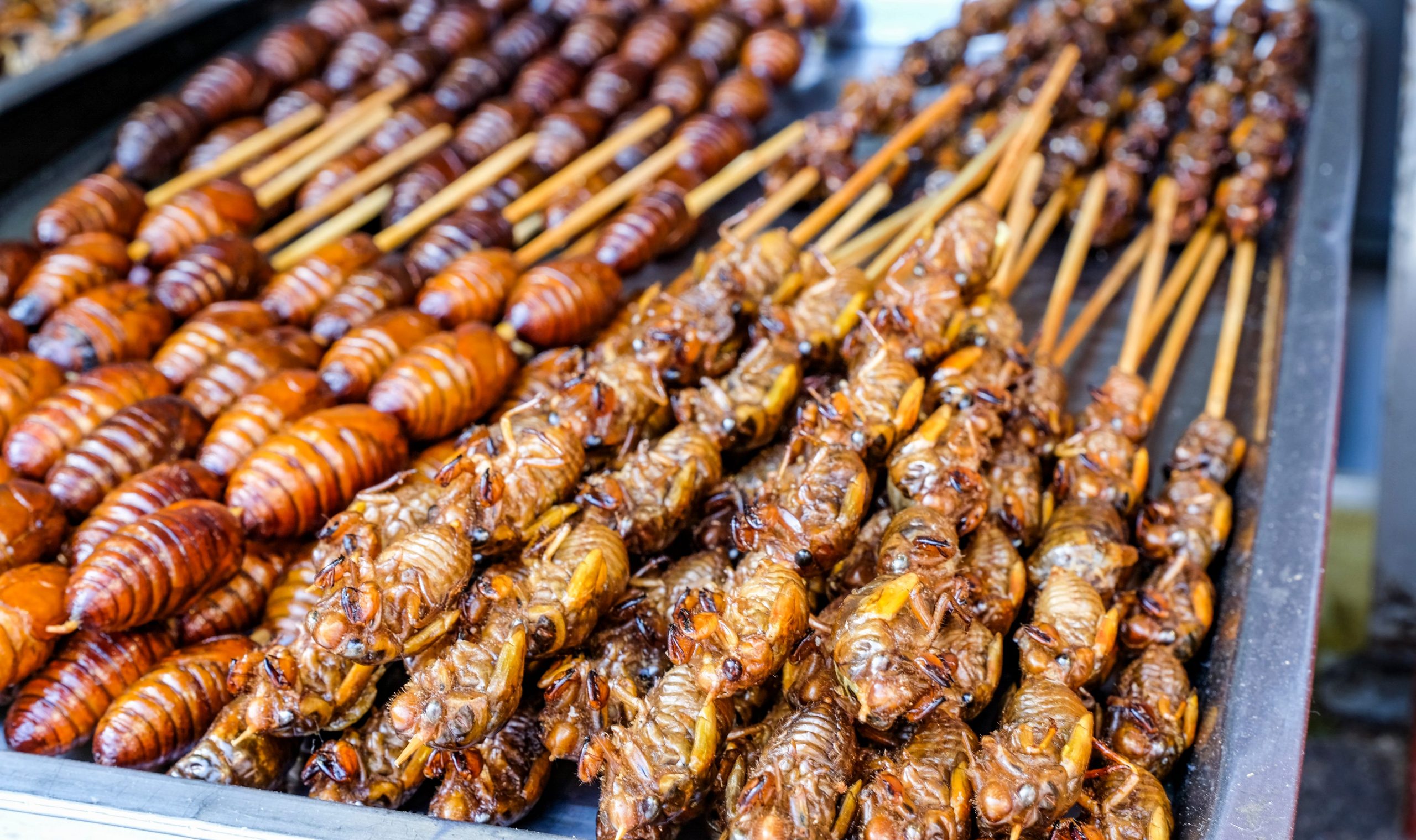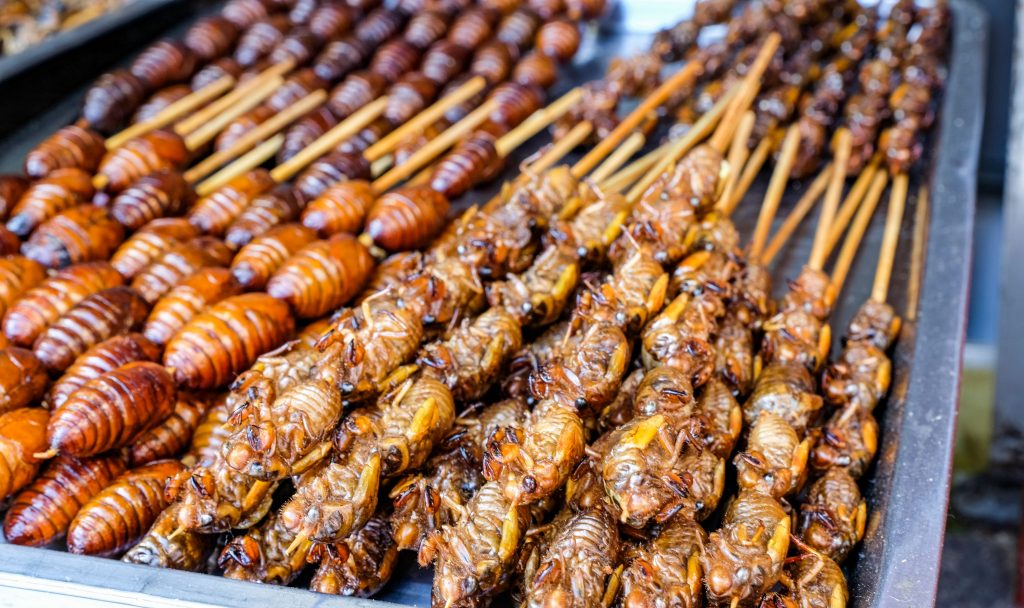
Ivan/Getty Images
- With trillions of cicadas flying around, some people have decided to eat the insects.
- Cicadas are rich in protein, and eating them is better for the environment compared to factory farming.
- It's important to clean the insects properly before eating them.
- Visit Insider's homepage for more stories.
With the emergence of trillions of Brood X cicadas in the US, Americans have more bugs flying around than they know what to do with.
Some insect aficionados have decided to turn lemons into lemonade – or rather, make a meal out of cicada season.
Those who've tried eating cicadas have called them "the shrimp of the land." Once you get past the crunchy exoskeleton, they have a juicy, buttery texture inside. While most compare the taste to shrimp or chicken, others say the bugs have a "green" flavor similar to tinned asparagus.
As with other insect delicacies, the cicadas' taste really comes down to how you season them. Spicy popcorn-fried cicadas, chocolatey cicada cookies, and even nutty, cicada-inspired cocktails may be on the menu this summer.
Here's what you need to know about how snacking on the seasonal insects could affect your health.
Cicadas contain tons of protein - as much as red meat
Like other edible insects, cicadas are high in protein and low in fat and carbohydrates. (This means they're keto-friendly.)
"They are literally a superfood," Chef Elise Harris told FOX 5. "They are full of antioxidants…Not only that, but they're a complete source of protein, meaning that they contain all nine essential amino acids."
She added that crickets, another popular edible insect, contain a whopping 43 grams of protein per serving. That's more protein than a serving of beef, which typically contains around 31 grams.
Cicadas contain a comparable amount of protein to red meat - more than 100 grams per pound, according to Inverse. Of course, you might find it more palatable to eat a big steak, but eating insects comes with a smaller carbon footprint.
Eating bugs is good for the environment
One person's infestation can be another's free, eco-friendly lunch, according to Jessica Fanzo, a sustainable food expert at Johns Hopkins University.
"There is the yuck factor, but people who are looking for alternative sources of animal protein shouldn't rule out cicadas," she told the Hopkins Hub.
Compared to factory-farmed meat, insects have as much protein without harmful environmental impacts like air and water pollution.
Once you get past any squeamishness, it might make some sense to harvest some cicadas from your backyard. They're free and abundant, and Brood X is here whether you like them or not.
Don't eat cicadas if you're allergic to shellfish, and be sure to clean them before eating
One risk of eating the shrimp-like insects is the possibility of an allergic reaction.
People who are allergic to shellfish should consult a doctor before eating cicadas, entomologist Isa Betancourt told NBC Bay Area during the 2013 cicada emergence.
Cicada eaters also risk exposure to pesticides if they don't choose and clean their insects properly - after all, the bugs were living in the soil for nearly two decades.
Some chefs recommend blanching cicadas before eating them, according to green lifestyle website Inhabitat. Boiling the insects will purify them of pesticides and germs, and dunking them in cold water will remove their legs and wings.
There's no harm in eating the crunchy legs and wings, but, like popcorn kernels, there's a risk of getting them stuck in your teeth, Betancourt said.

